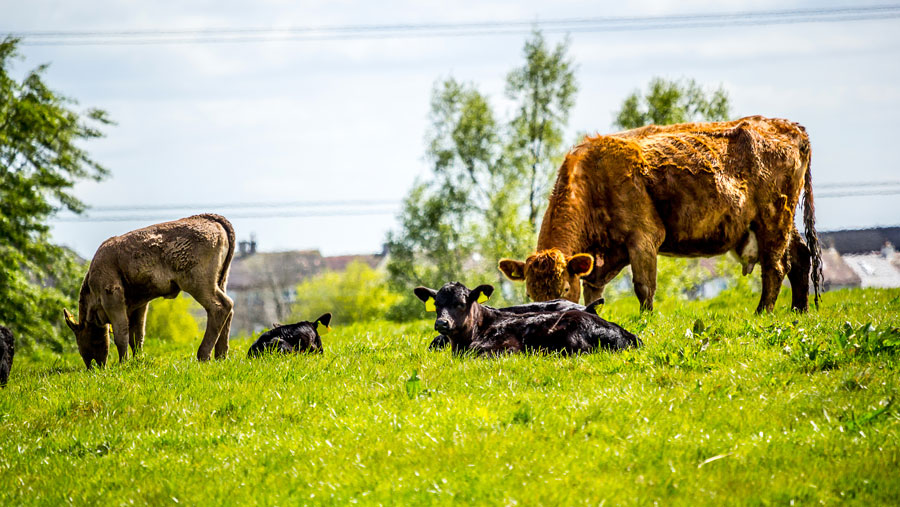Scottish farming and climate groups agree net-zero strategy
 © JulietPhotography/Adobe Stock
© JulietPhotography/Adobe Stock Farmers, academics and environmental groups in Scotland have taken part in an independent inquiry to help reach a consensus on achieving net-zero agriculture by 2045.
Over the past two years the separate bodies have swapped their usual polarised positions to contribute views to an independent panel called the Farming for 1.5° Inquiry.
See also: Video: Farmers urged to rethink safety and stop taking risks
The panel concluded its evidence-gathering sessions earlier this year and all parties have agreed a set of policy recommendations to achieve net-zero in the sector by 2045.
The key recommendations of the report include:
- Whole farm contracts to deliver on farming and nature from 2024
- Reducing total emissions from agriculture while maintaining food production per capita
- Rapid uptake in low methane breeding for cows and sheep.
Phased approach
The recommendations would then be introduced in a five-phase approach.
- Phase one, beginning immediately, would cover data capture and use to begin establishing an accurate picture of the existing situation. The report also recommends developing a universal carbon calculator to make comparisons easier.
- Phase two would use this data to roll out better practice on farms from 2022. This would include nutrient budgeting, inter-cropping, manure management, genetic improvement and slurry injection.
- Phase three suggests farmers should be offered a choice of approaches to embrace either precision farming or nature value pathways. Pilot studies should start as soon as possible, with contracts offered from 2024.
- Phase four would look at whole-system change via agroforestry, organic, or regenerative farming practices.
- Phase five would then encourage farming and forestry integration, along with peatland and wetland restoration.
Reaching net-zero
Nigel Miller, vet and former chairman of the Farming and Wildlife Advisory Group in Scotland, acted as co-chair for the inquiry alongside Pete Ritchie of Nourish Scotland.
Mr Miller said evidence had covered integrating food production, biodiversity, the wellbeing of rural communities and the landscape, and reached a net-zero solution.
“The inquiry journey has reached into soil health and sustainable cropping, in some ways revisiting principles which were established in the 18th century with the first agricultural revolution,” Mr Miller said.
Cutting-edge science, precision techniques and genetics have also been a significant focus. Both approaches will be part of the net-zero strategy.
“The report, built on consensus, delivers for society as a whole, but also provides an integrated route for farmers, crofters and land managers to deliver diverse and sometimes conflicting policy priorities,” Mr Miller added.
Groups involved
- NFU Scotland
- Nourish Scotland
- SRUC
- RSPB
- Scottish Forestry
- James Hutton Institute
- University of Oxford
- Nature Friendly Farming Network
- UK Climate Change Committee
- Centre for Ecology and Hydrology
Further information
The full report can be read in pdf format on the Farming for 1.5° website
